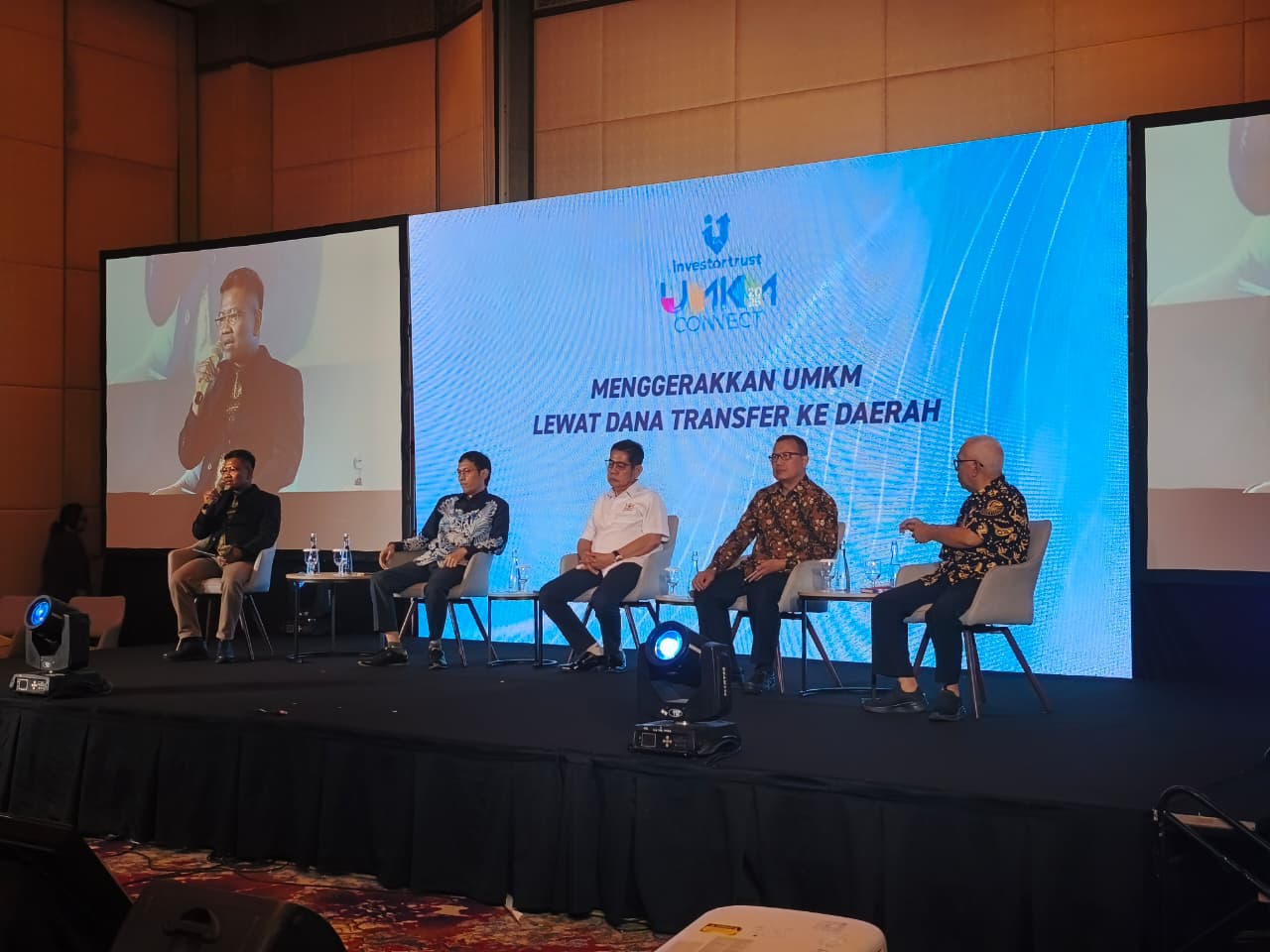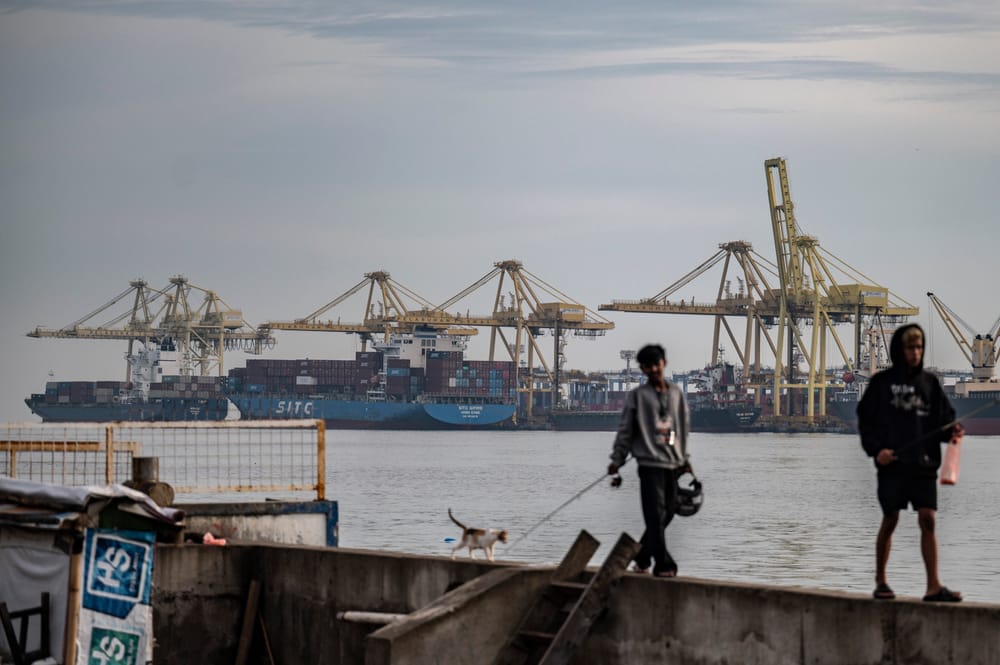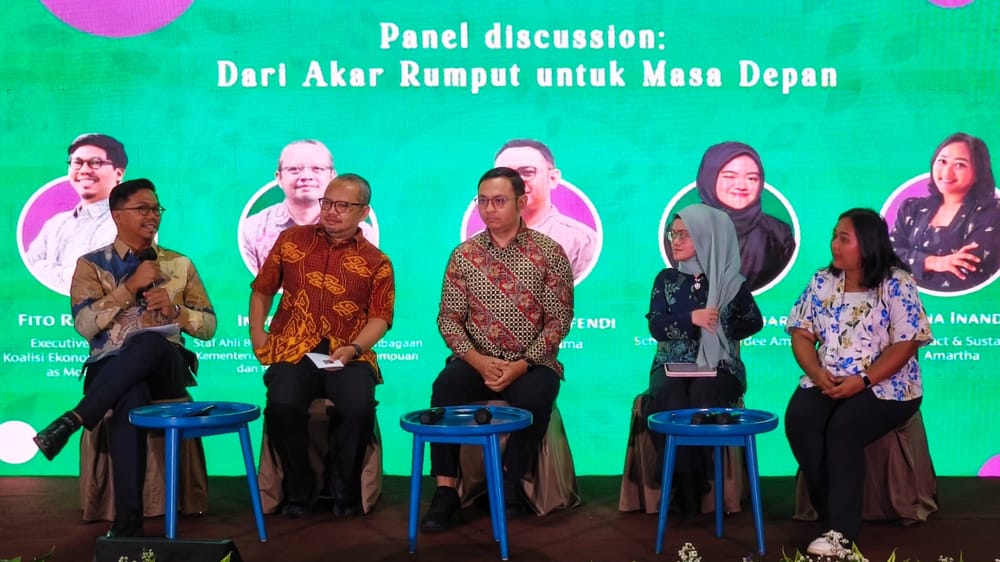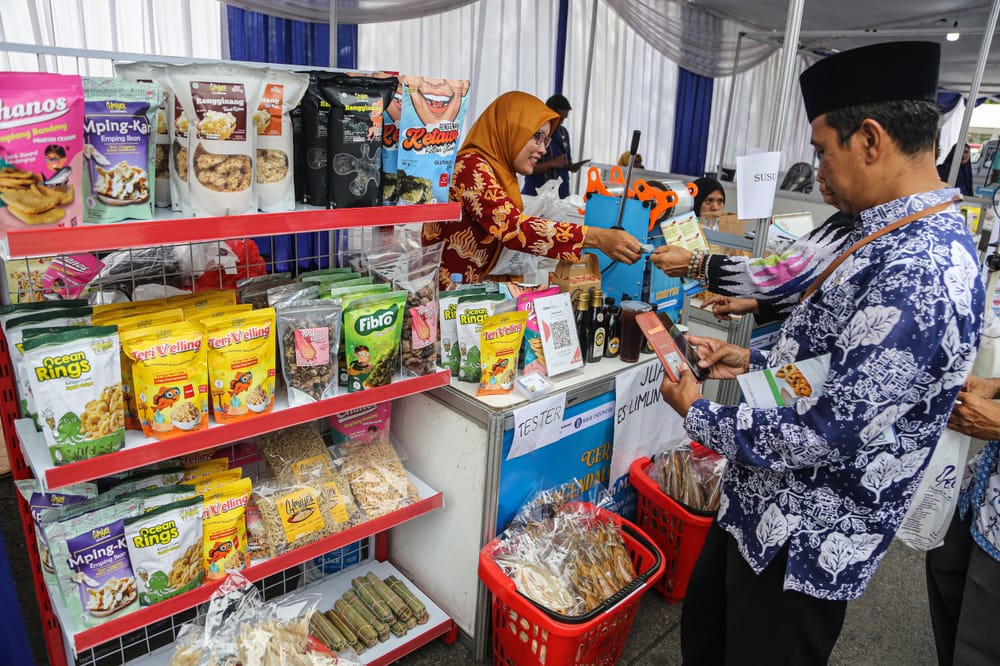Amid the government's efforts to encourage economic growth, micro, small and medium enterprises (UMKM) are the main drivers that support almost all economic activity in the regions.
Fiscal policies such as regional transfer funds (TKD) are now seen not only as a budget equalization mechanism, but as an important instrument to strengthen the foundations of the people's economy.
Deputy for Medium Enterprises at the Ministry of UMKM, Bagus Rachman, explained that the government views TKD as one of the most strategic fiscal instruments in promoting economic equality.
"General allocation funds, special allocation funds, revenue sharing funds and village funds should not only be tools for transferring budgets, but also drivers of a productive and sustainable local economy for UMKM in the regions," said Bagus in a discussion in Jakarta, Thursday (23/10/2025).
Bagus outlined a number of strategic steps that the government is currently taking, from financing reform to UMKM digitalization.
The government has distributed Rp217 trillion in people's business credit (KUR) to 3.7 million business actors, with 60% of it directed to productive sectors such as agriculture, fisheries and processing industries.
In addition, the Ministry of UMKM is preparing an integrated digital platform Sapa UMKM to make it easier for business actors to access permits, financing, training and product promotion online.
Bagus added that the synergy between TKD and UMKM empowerment policies is expected to accelerate economic equality. Through innovative management, transfer funds can be used to strengthen local economic infrastructure, increase business capacity, and expand access to markets and financing.
Bagus stated the importance of cross-agency collaboration so that the use of TKD truly has an impact on the productivity and independence of UMKM in the regions.
Healthy fiscal
Director of the Financial Balancing System of the Ministry of Finance, Subandono, said that the national economy grew 5.12% in the first semester of 2025, with inflation of 2.5% and a state budget deficit of 1.56%. He considered this healthy fiscal condition important so that UMKM can survive and move up a class.
According to him, state budget support for UMKM has continued to increase post-pandemic, reaching around Rp56.4 trillion in 2025 through ministry and agency spending, TKD, KUR interest subsidies, and UMKM financing schemes.
Subandono emphasized that central and regional spending are a unified whole that complement each other in supporting UMKM. The crucial issue at the moment is accelerating the absorption of regional budgets, because as of October there are still many regional governments with spending realizations below 60%.
"The next key is to accelerate spending so that money circulates, liquidity flows, and the local economy grows," he said.
Furthermore, Subandono explained that the 2024 regional budget allocated around Rp1.4 trillion for various UMKM schemes with a realization of Rp1.26 trillion, while the 2025 ceiling rose to Rp1.44 trillion but the temporary realization was only Rp472 billion.
For 2026, the focus of TKD is directed first to fulfilling basic regional spending, while government priority programs will be carried out through related ministries and institutions involving coordination with regional governments.
Subandono also mentioned additional support in the form of the Merah Putih Village Cooperative worth approximately IDR 83 trillion, including a loan ceiling of up to IDR 3 billion, a tenor of six years, an interest rate of 6%, and a grace period of 6 to 8 months.
The Deputy Chairperson for UMKM Entrepreneurship at the Indonesian Chamber of Commerce and Industry (Kadin Indonesia), RM Tedy Aliudin, highlighted the condition of small businesses, which are still dominated by micro-enterprises.
Citing a study by Kadin, the portion of micro-enterprises reaches 99.62%, with 67.8% of UMKM having an annual turnover of below IDR 50 million, and 31.8% having a net monthly income of below IDR 1 million. Tedy believes this situation reinforces the urgency of effective TKD to drive the local economy and improve the competitiveness of business actors in the regions.
Tedy added that strengthening the impact of TKD needs to be followed by improving the capacity of UMKM on three main sides, namely competence, market network, and capital. He encourages the implementation of government spending provisions for UMKM in accordance with PP 7/2021 of at least 40% as well as monitoring the realization in the central and regional levels. "The policy is good, the regulation is good, it's just a matter of realization," he said.
Reconsider
However, a different opinion was conveyed by the Secretary General of the Indonesian UMKM Association (Akumindo), Edy Misero, who said it is important to review the effectiveness of transfer funds to the regions in driving the UMKM sector.
Even though the policy mandates that 40% of government spending be allocated to UMKM, the impact on the ground is still limited.
"Even if 40% is spent, the average value is only around IDR 3 million per UMKM per year. How can that much money really drive the economy?" he said.
Edy also highlighted the obstacles to accessing financing that UMKM actors still face, especially for credit below IDR 100 million, which should not require collateral.
According to him, many banks still require collateral, so policies that should make it easier for UMKM are difficult to implement. For Edy, challenges like this must be addressed immediately so that UMKM actors can take advantage of fiscal support optimally.
In addition to access to financing, Edy highlighted the limited infrastructure in the regions which still hinders the digital transformation of UMKM. He noted that there are still many areas that are not covered by internet services, so business actors at the local level have difficulty expanding their markets.
"Currently there are around 10,000 villages in Indonesia that are not covered by the internet. How can my brothers and sisters in the village grow if there is no signal?" he said.
Therefore, he believes that the establishment of the Merah Putih Village Cooperative should be directed at strengthening the supply chain and helping village products penetrate markets outside the region, not just meeting local consumption needs.
Thus, for Edy, the spirit of empowerment brought through the regional transfer fund program can truly boost the economy.
CEO of Investortrust.id, Primus Dorimulu, explained that of the four main engines driving the economy, namely consumption, investment, exports and government spending, TKD is one of the most influential supports for small business actors in the regions.
The 2026 TKD allocation is set at IDR 693 trillion, up IDR 43 trillion from the initial design, but still down sharply compared to 2025 which reached IDR 848.5 trillion. According to him, this condition raises concerns among regional entrepreneurs because it can reduce the driving force of the local economy.
According to Primus, most UMKM outside the economic center are very dependent on regional projects sourced from TKD. More effective fund distribution will help strengthen economic liquidity, maintain the stability of small businesses, and open up space for expansion for the productive sector.
"In the regions there are not many large corporations, the most are micro and small businesses," he said.






